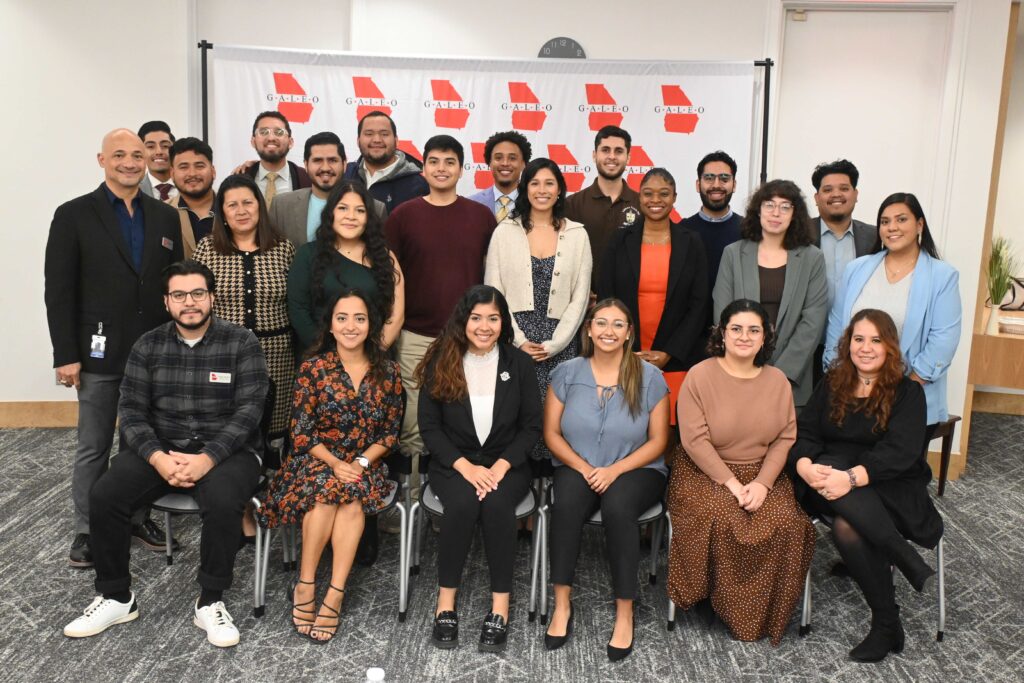
For Immediate Release
February 5, 2019
Contact:
Andrew Crook
o: 202-393-8637
c: 607-280-6603
acrook@aft.org
www.aft.org
Private Prison Risk to Public Pensions Exposed
AFT Asset Manager ‘Watch List’ Urges Divestment from Firms Profiting off the Mass Incarceration of Communities of Color
WASHINGTON—The American Federation of Teachers is urging public pension funds with more than $3 trillion of deferred wages under management to review their holdings in the wake of a new report exposing how retirement funds are at risk through investments in private prisons that profit from mass incarceration.
“Private Prisons and Investment Risks, Part Two: How Private Prison Companies Fuel Mass Incarceration—and How Public Pension Funds Are at Risk” was released Tuesday by the AFT with the support of 35 other organizations including the Journey for Justice Alliance. The report reveals the direct and indirect investments public pension funds have in CoreCivic and GEO Group, which reap billions each year by jailing minority populations and exploiting the school-to-prison pipeline. The state pension funds named in the report currently hold over $75 million in private prison stock.
The report features a “watch list” of the private equity firms that own for-profit companies that provide services to detention facilities. And it reveals how pension funds may be backing companies that put public employees out of a job by funding firms that benefit from privatization. Private equity firms have significant investments in for-profit corrections companies, and many retirees are exposed through these funds or via direct shareholdings.
The report urges pension trustees to examine their portfolios for exposure to CoreCivic and GEO Group, and to consult the watch list when making future asset allocation decisions. Both firms’ bottom lines stand to be affected by the bipartisan passage in December of the criminal justice bill, which added to the political, legal and financial pressure on the prison industrial complex.
“This is, first and foremost, a humanitarian and civil rights issue,” said AFT President Randi Weingarten. “But it is also a financial issue that brings the misaligned incentives of our justice system into stark relief. Private prisons and private equity firms that invest in corrections companies are profiting from jailing people—disproportionately people of color—and are a major contributor to the United States’ world-leading incarceration rate.
“The bipartisan criminal justice bill passed by Congress and signed by the president in December shows the tide may be turning quickly against this abhorrent industry. All these factors—humanitarian, fiscal, legal, regulatory and political—create significantly riskier investments. Pension trustees have a fiduciary duty to ensure workers’ capital is invested in a fiscally prudent manner. We are working closely with the AFT Trustee Council to safeguard workers’ retirement security to ensure our members and retirees reduce their exposure to the risk these firms traffic in.”
Jitu Brown, director of the Journey for Justice Alliance, said, “Mass incarceration is the new Jim Crow, and it has devastated black and brown communities across the country. Companies like CoreCivic and GEO Group, whose entire business models depend on putting more people in prison, aren’t serving the public like they’d have you believe; they’re making billions of dollars every year, and doing it on the backs of inmates, their families and the people who work in their facilities. Private equity firms that seek to profit off of privatizing prison services are just as culpable, and their greed leads them to put inmates, workers and the public at risk. It’s not surprising that public pension funds are starting to question why workers’ savings should be invested in the private prison industry at all. Given the risks that investments in private prisons pose, the Journey for Justice Alliance encourages all public pension funds to consider divesting.”
“As a parent and the spouse of an educator in New Jersey,” said Byheijja R. Sabree, a Journey for Justice Alliance member in Camden, N.J., “I was surprised to find out that part of my husband’s pension money was being used to fund the prisons we are desperately trying to keep our children out of. The pension fund in our state just voted to get out of these risky investments, and I know other states are following suit. Pension funds can play a powerful role in holding private prison companies accountable.”
Maulana Tolbert, a public school parent in Detroit, said, “I know teachers work hard to educate our children. We don’t want to see any of our children end up in prison, and it’s heinous that there are companies out there that think prisons are a good way to make billions of dollars. It’s time to rethink how our money is being invested. Our children are our future.”
State and federal governments are beginning to curb the footprint of private prisons, as political and financial sentiment turns against them. Even before December’s criminal justice bill passed, governors in Illinois, Iowa and New York had signed legislation banning private prisons. And after the AFT released Part 1 of the report last year on pension funds that invest in immigration prisons on the southern border, three funds overseeing a combined $300 billion in assets—the California State Teachers’ Retirement System, the New Jersey Pension Fund and the Chicago Teachers Pension Fund—all voted to divest.
The AFT Trustee Council, which helps educate and support trustees who oversee the retirement security of 1.7 million AFT members and their families, will now review the report, which is available here.
###
Follow AFT President Randi Weingarten: http://twitter.com/rweingarten
_____
The American Federation of Teachers is a union of 1.7 million professionals that champions fairness; democracy; economic opportunity; and high-quality public education, healthcare and public services for our students, their families and our communities. We are committed to advancing these principles through community engagement, organizing, collective bargaining and political activism, and especially through the work our members do.